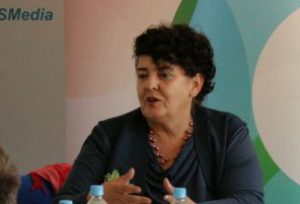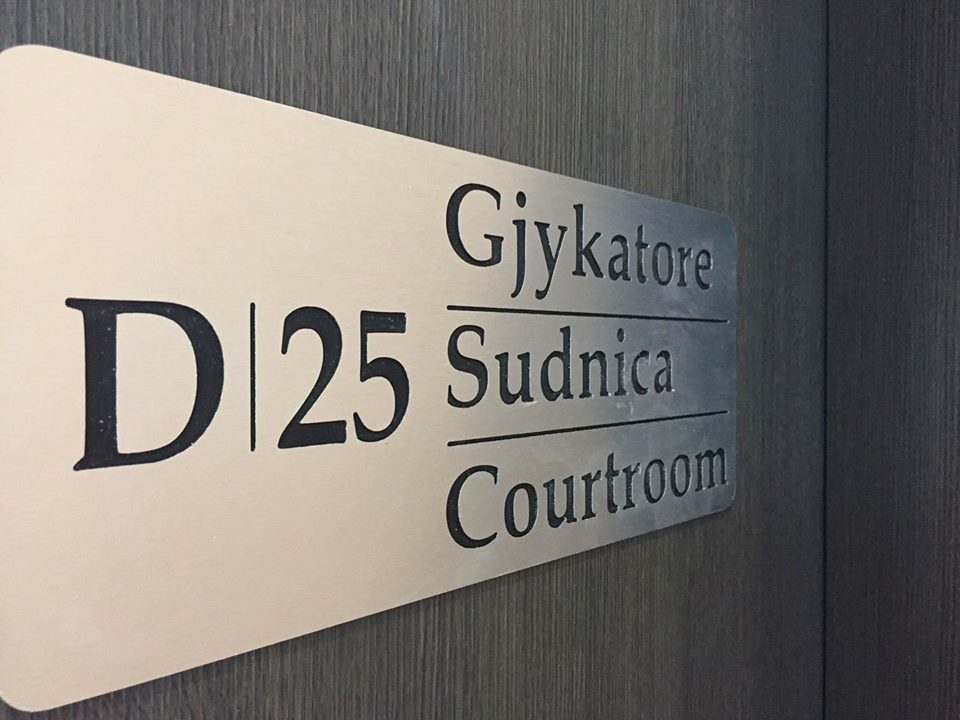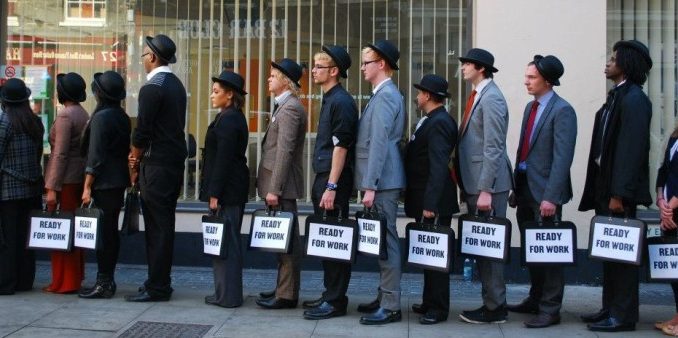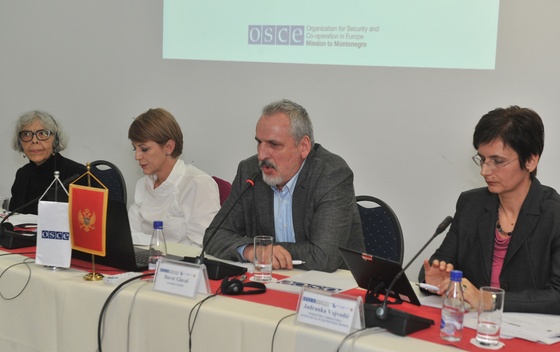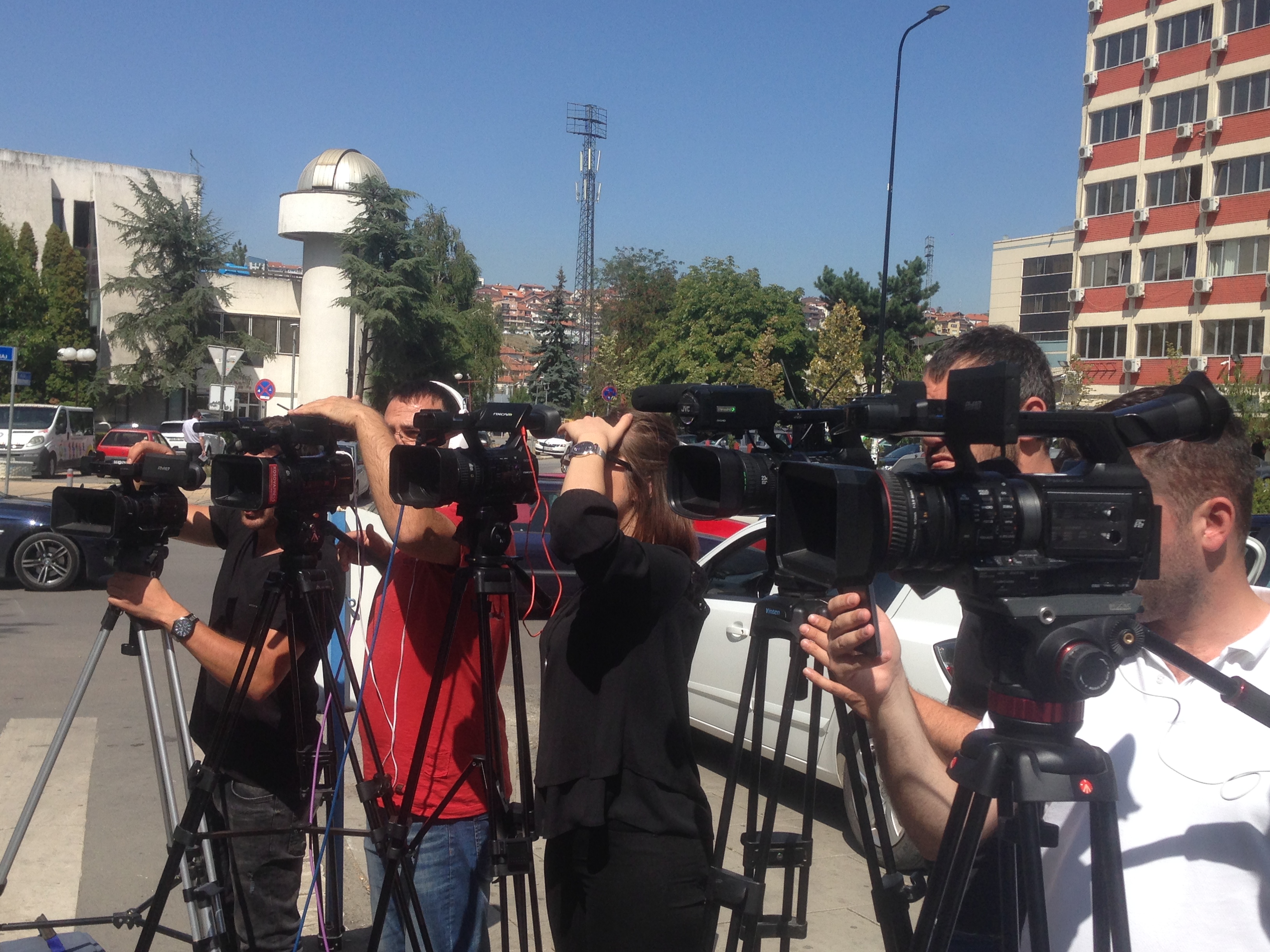SARAJEVO, 23.10.2017.-Izbor profesije jedan je od velikih koraka u životu svake mlade osobe. Ali čime se vode mladi kada biraju ono čime će se baviti? Da li prije nego upišu fakultet istraže koliko ima svršenika tog fakulteta na birou i kolika je stvarna potražnja za tim pozivom na bosanskohercegovačkom tržištu rada?
Služba za zapošljavanje Kantona Sarajevo obavještava nas da se na evidenciji JU “Služba za zapošljavanje Kantona Sarajevo” trenutno nalaze 342 diplomirana novinara, 99 diplomiranih komunikologa i devet lektora.
“Prema podacima našeg Sektora za posredovanje i evidencije, bosanskohercegovački mediji veoma rijetko traže našu pomoć vezano za zapošljavanje diplomiranih žurnalista. Oglase za zapošljavanje ili volontiranje uglavnom objavljuju putem svojih javnih emitera i portala.”
Konobarska perspektiva
Kakva je perspektiva diplomiranih žurnalista ako osoba koja završi žurnalistiku mora stati u red kao 450. osoba u redu za zapošljavanje? I pored toga, iskustva naših sagovornika svjedoče o lošim praksama, honorarima koji kasne po pola godine i neplaćenom radu. Da li su i studenti žurnalistike mladi od kojih možemo očekivati odlazak iz Bosne i Hercegovine u potrazi za nekim sretnijim i boljim prilikama? Čini se da je ovdje ključno postaviti pitanje hiperprodukcije kadra, ne samo vezano za studije žurnalistike i komunikologije već i za mnoge druge poslije kojih su glavne perspektive konobarisanje i odlazak iz zemlje. Zbog čega plaćamo profesore, grijanje zgrada, kopiranje materijala, asistente, higijeničarke, upravu i hiljade drugih stvari potrebnih za održavanje obrazovnog sistema ako od toga niko nema koristi – ni studenti koji se godinama muče da polože neke ispite, ni država kojoj novinari očigledno nisu potrebni?
Haris Parabuča, student žurnalistike u Sarajevu, kaže da se mladim novinarima nakon završetka studija nude neplaćene prakse u medijskim kućama koje očekuju da njihovu praksu smatrate privilegijom.
“U posljednje vrijeme sam vidio dosta oglasa za posao u kojima se traže minimalno dvije godine iskustva, što osoba sa friško isprintanom diplomom sigurno nema. Nedovoljno plaćene prakse u online medijima su već jedan od modernih trendova gdje urednik očekuje od vas da napišete minimalno pet članaka dnevno ili da jednostavno kopirate tekst drugog portala i objavite ga na njihov. Takva vrsta prakse neće pomoći mladom novinaru da stekne bilo kakvo iskustvo. Jedan od dobrih primjera jeste N1 koja svake godine nudi praksu studentima završne godine te one najbolje zaposli, ali ipak je to samo jedan od medija, što svakako nije dovoljno.”
Slično razmišlja i magistrica komunikologije Fakulteta političkih nauka u Sarajevu: “Bosanskohercegovačko medijsko tržište ne nudi mnogo diplomiranim komunikolozima. Problem kreće od studija na kojem ne naučimo dovoljno da bismo poslije bili spremni za rad. Onima koji završe komunikologiju, najveći problem na bh. tržištu predstavlja traženje godina iskustva, koje mi nemamo, jer ovo medijsko tržište ne nudi mnogo opcija u vezi sa učenjem vještina i stjecanjem praktičnog znanja iz područja komunikologije. Velike redakcije rijetko ili nikako ne primaju ni volontere niti pripravnike. S druge strane, trebalo bi da provodimo nekoliko godina upravo volontirajući, uglavnom slabo plaćeno ili nikako plaćeno, da bismo bili spremni da se javimo na neki od konkursa za posao. Dakle, to je zatvoreni krug. Diplomirani komunikolozi ne odgovaraju dobro na zahtjeve bh. medijskog tržišta zbog manjka ili znanja ili prakse, kako su to i neke medijske kuće potvrdile. Zbog takvog grča u odnosu između tržišta i nas, novinara, uglavnom radimo poslove koji nisu u vezi sa strukom.”
Rad, red i disciplina
Uprkos svim nedaćama na bosanskohercegovačkom tržištu rada, uvijek postoje oni koji se i u ovakvim uslovima trude da iskoriste svaku priliku i da se pripreme za uslove koji ih čekaju po završetku studija. Milan Ilić, student na Katedri za novinarstvo Filozofskog fakulteta na Palama, shvata kakva je perspektiva diplomiranih žurnalista i zbog toga se za vrijeme studija trudi da se kroz različite prakse usavrši kako bi bio konkurentan na tržištu rada. Problem diplomiranih žurnalista ne vidi samo u sistemu već i u njihovoj spremnosti za rad i usavršavanje. “Perspektiva je, po mom mišljenju, dobra, jer ima dosta mogućnosti koje se pružaju mladima, bilo kroz praksu ili kroz rad. Problem je druge vrste: mladi su previše pasivni. Već je isfurana fraza sa pasivnošću, ali je to realnost. Diplomirani novinari tek kreću da traže posao nakon fakulteta, što je greška jer se treba krenuti od starta. Diploma je samo papir. Iskustvo je bitnije, a to je kod mladih najveći problem. Ne treba da se čeka na zaposlenje, već da grizeš i tražiš ga sam. Ništa ne pada sa neba. Naprimjer, samo na platformi Hocu.ba ima preko 10 poslova na sedmičnom nivou. Svaku priliku treba iskoristiti.”
Prilika za volontiranje i usavršavanje svakako ima, i oni koji su uporni mogu ih pronaći, ali jedno od osnovnih pitanja u svakoj struci, a u današnjoj bosanskohercegovačkoj zbilji i ponajvažnije, jeste upravo pitanje plaćenosti nekog poziva. Upravo zbog toga što sebi radom u struci ne mogu obezbijediti osnovna primanja, novinari sve češće odustaju od svog poziva i materijalnu sigurnost traže na drugom mjestu. Nefa Mervan je žurnalistiku diplomirala u Tuzli 2011. godine i od posla svojih snova odustala je iz finansijskih razloga. “Žurnalisti u BiH imaju dvije opcije: jedna je da rade šta vole i preživljavaju od mizerne plaće, a druga je da batale žurnalistiku i zarade novac za normalan život. Žurnalisti su nedovoljno plaćeni za posao koji obavljaju, nebitno u kojem mediju rade. Zaista je sramotno da je plaća novinara ispod prosječne u našoj državi. Ja sam diplomirala žurnalistiku 2011. i radila sam tri godine u svojoj branši – stid me reći za koji novac. Danas više ne radim ono za šta sam se školovala, što mi je žao, ali nemam izbora, kao i većina kolega. Ukratko, perspektiva žurnalista u BiH i ne postoji, nažalost.”
Na kraju, postavlja se i pitanje odgovornosti. U Bosni i Hercegovini niko nizašta nije odgovoran i svaki dan prihvatamo zatečeno stanje kao da tako mora biti. Da li odgovorni mogu biti srednjoškolci koji su pratili svoj talenat i nadali se da će za nekoliko godina kada završe studij raditi ono što vole? Svakako da najveća odgovornost leži na vlasti, koja zarađuje na svojim građanima, njihovim školarinama plaća profesore i sve druge državne službenike koji je preko dvadeset godina dižu iz mrtvih. U Bosni i Hercegovini studenti su postali ovce za šišanje, a pošto im se uzmu pare za slabo znanje, loše uvjete studiranja i maltretiranje, onda ih se pusti na tržište rada, gdje se, u nedostatku prakse i znanja, ne mogu snaći.
Osnovni instrument ovakvog sistema su fakulteti koji svake godine raspisuju konkurse bez obzira na hiperprodukciju kadra. Ti fakulteti nisu ni u kakvom dosluhu sa Službom za zapošljavanje, a primit će onoliko studenata koliko mogu da bi pokrili svoje finansijske troškove. Zbog toga bosanskohercegovačka medijska scena uglavnom se svodi na preživljavanje. Time se može objasniti i loš kvalitet medijskog sadržaja: u borbi za zaradom, kvalitet i sloboda govora postaju preskupe igračke.
Izvor: Analiziraj.ba


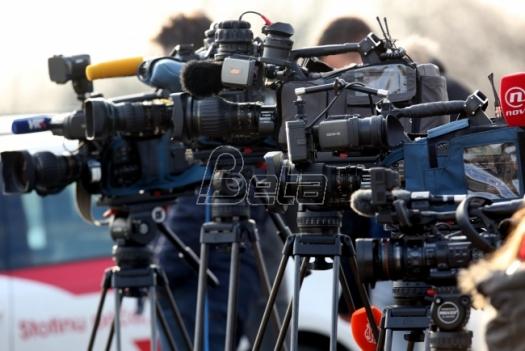
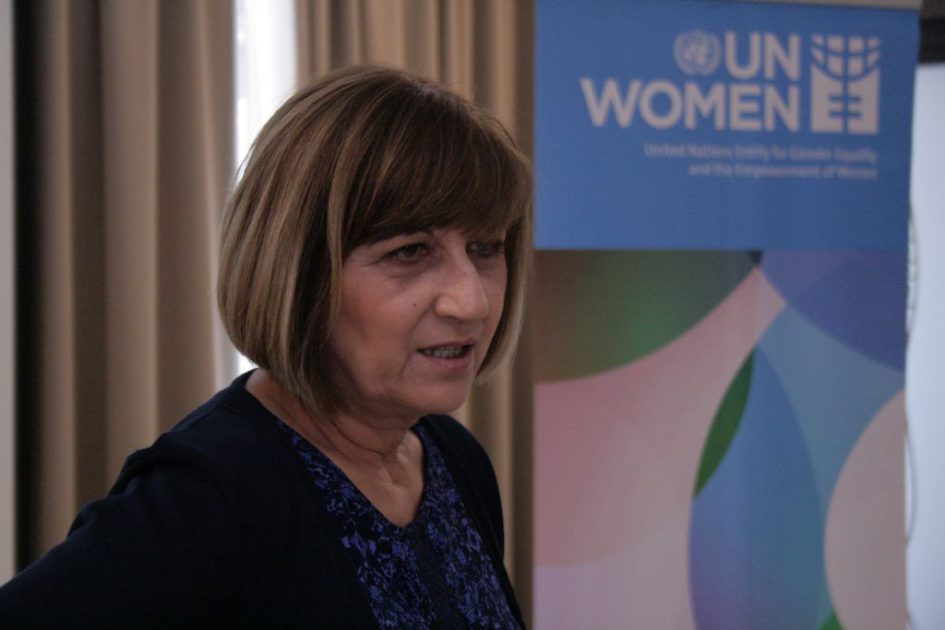
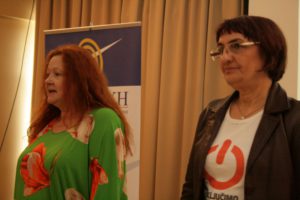
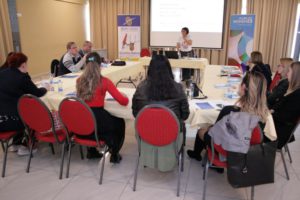
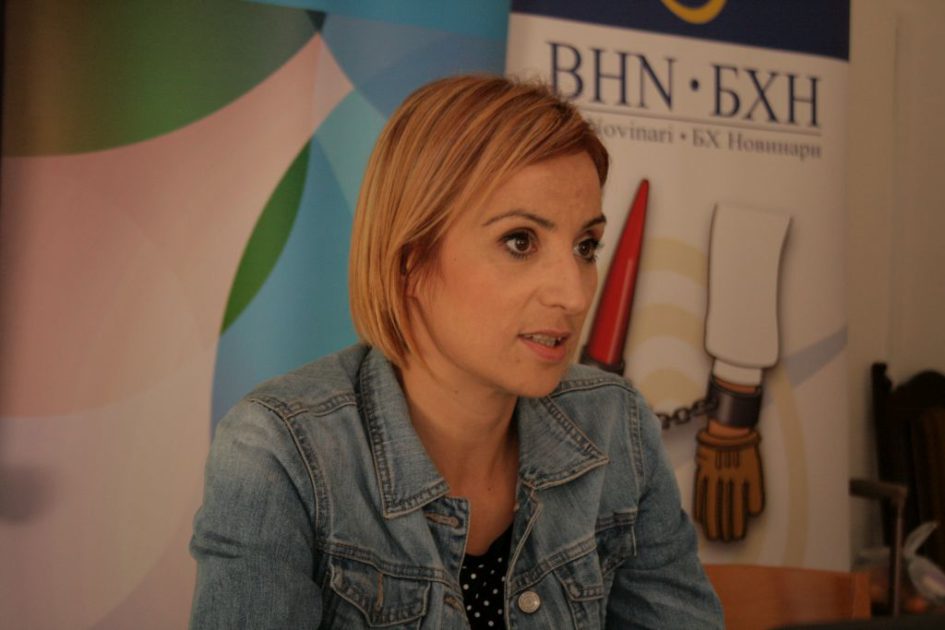
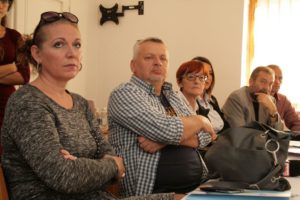 Ljiljana Zurovac, Executive Director of the Press Council, spoke about the journalistic approach to reporting on the topic of gender-based violence, in particular on the preparation for a journalist interview with women or girls who survived violence.
Ljiljana Zurovac, Executive Director of the Press Council, spoke about the journalistic approach to reporting on the topic of gender-based violence, in particular on the preparation for a journalist interview with women or girls who survived violence.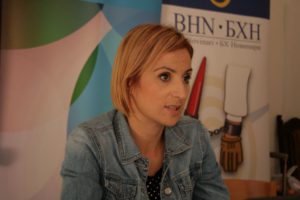
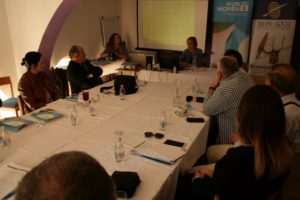
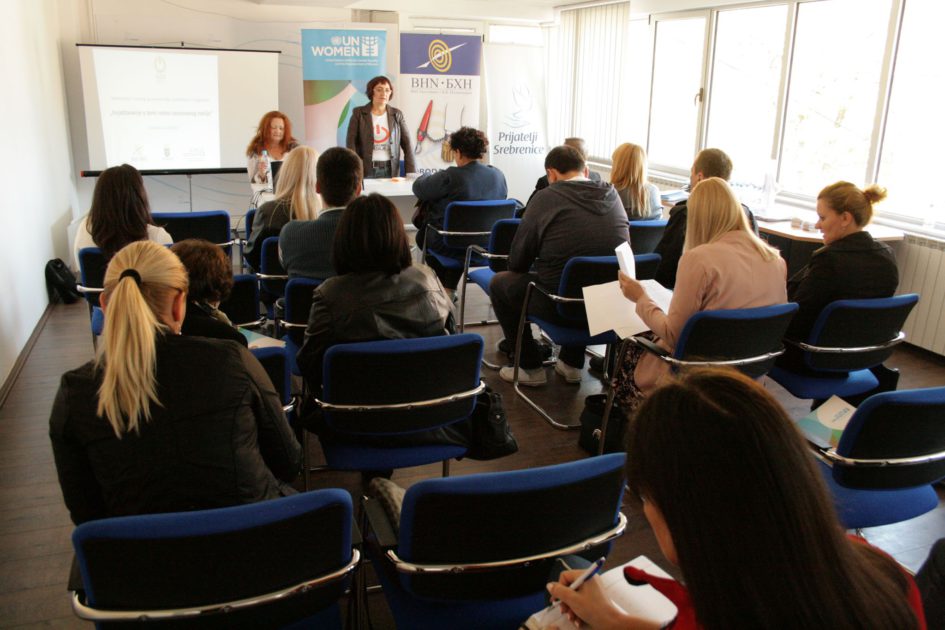
 “Non-governmental organizations engaged in fighting against domestic violence and gender-based violence play a key role in advocating the legal sanctioning of such violence,” said journalist and activist Milkica Milojević
“Non-governmental organizations engaged in fighting against domestic violence and gender-based violence play a key role in advocating the legal sanctioning of such violence,” said journalist and activist Milkica Milojević